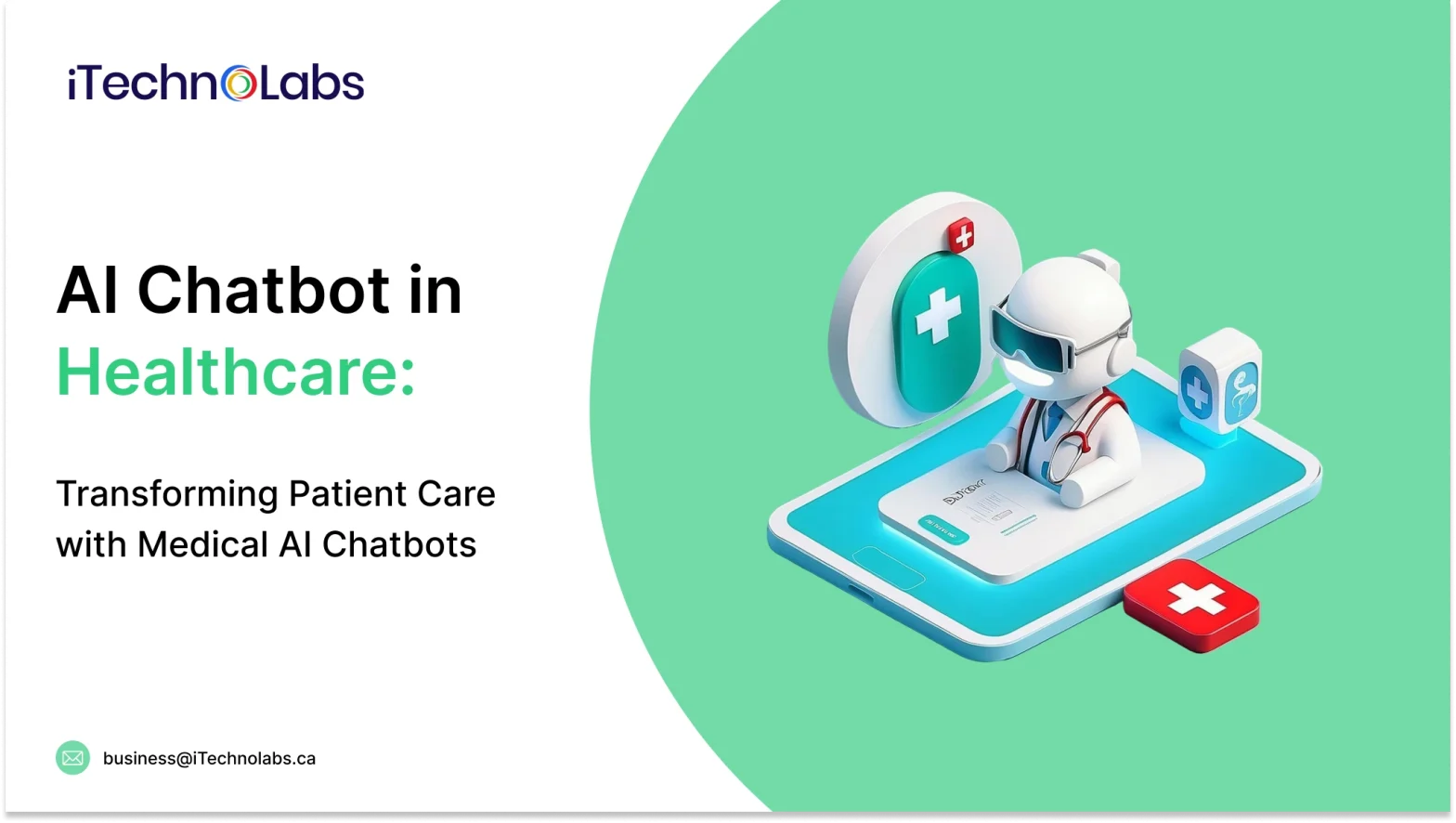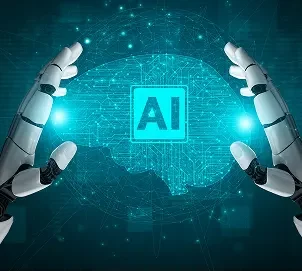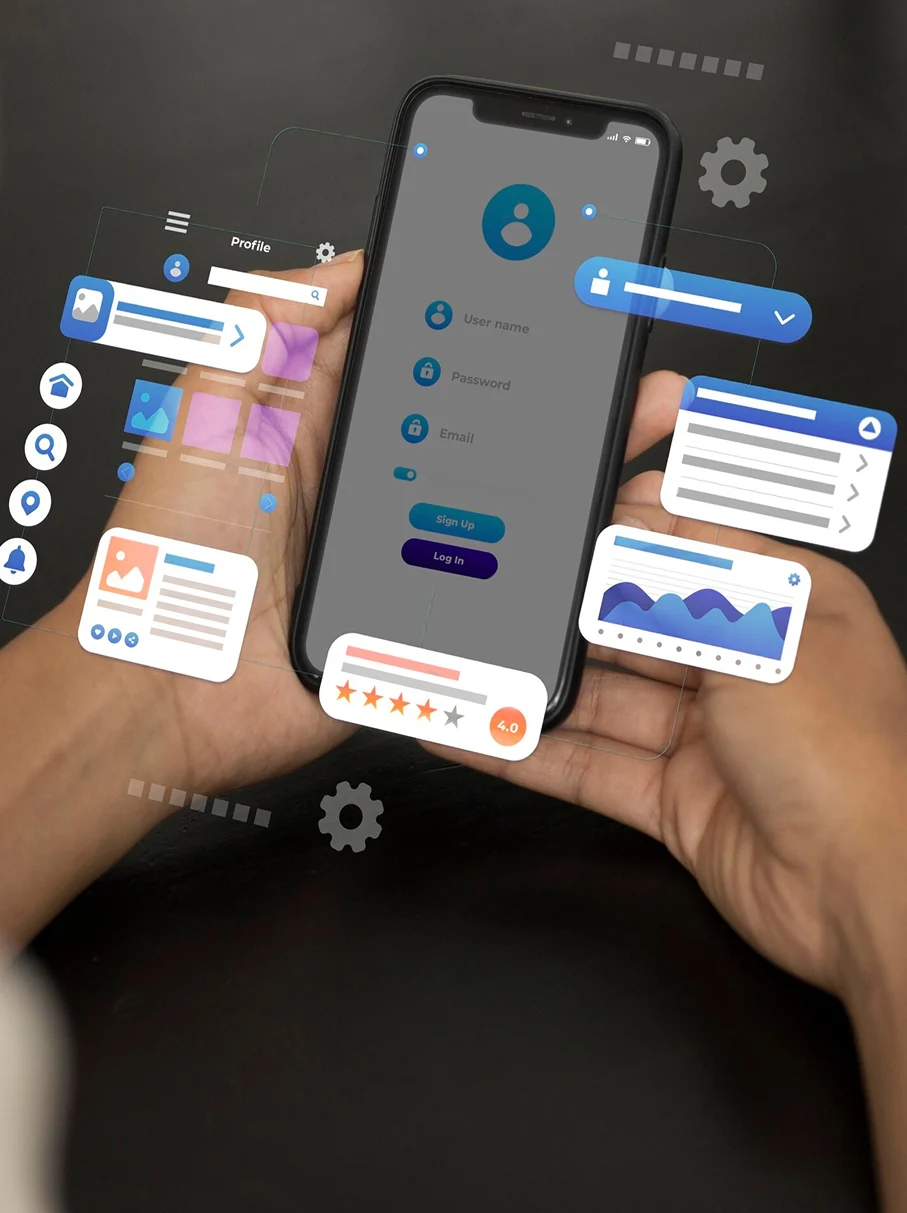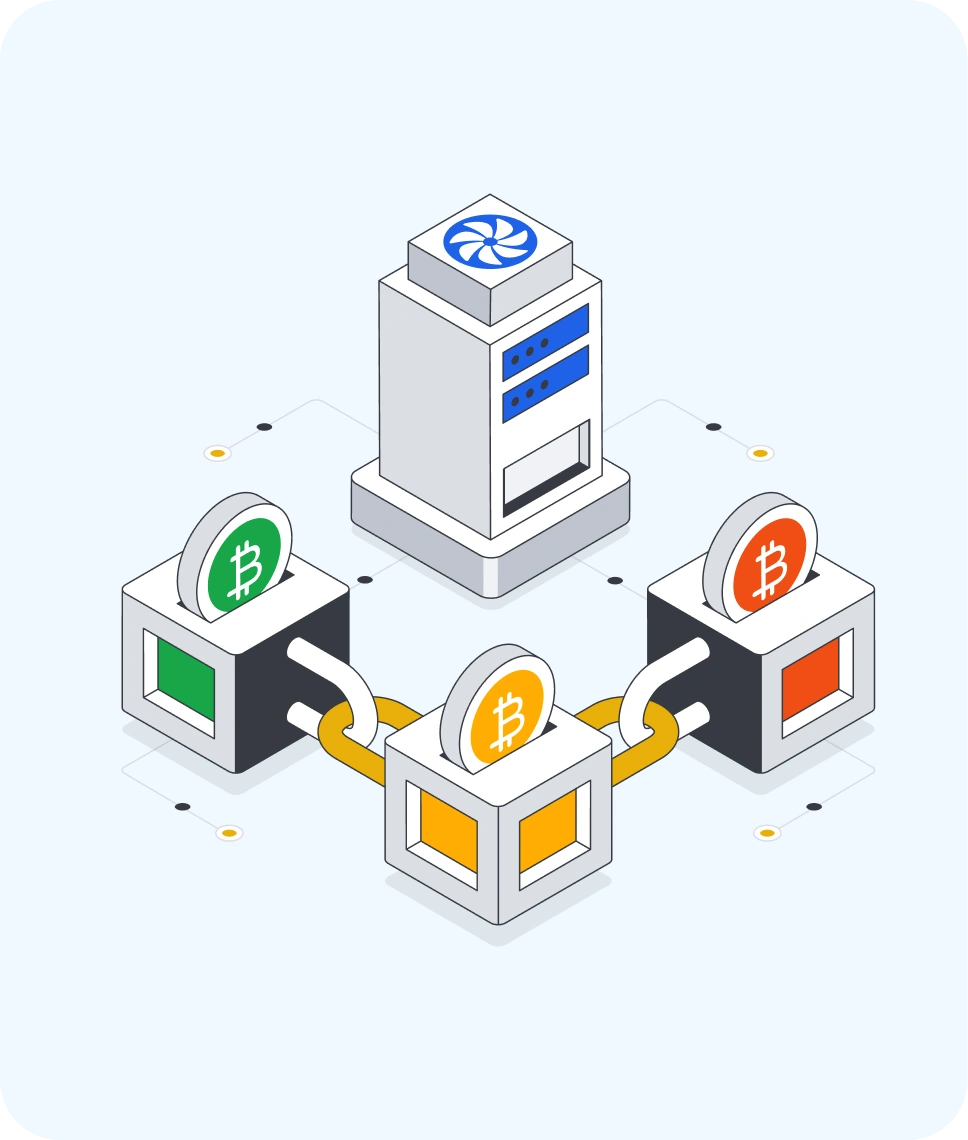Technology has brought the world numerous inventions over the last few years. However, the most notable one is AI, which has impacted every industry in a good way. One of the industries using AI is healthcare. The AI chatbots in healthcare allow patients to schedule appointments and talk about their medical problems. It helps hospitals maintain patient records without human staff and monitors patients’ activities 24/7. The benefits of a medical AI chatbot are vast. It not only helps in the administrative work of hospitals, but also reminds patients about their medicines on time.
This is just the beginning, as in the future, more and more healthcare firms will adopt this technology for their routine work. In 2024, the global healthcare chatbot market was valued at $1.2 billion and is expected to reach $10.26 billion by 2034. Read this blog to learn what are AI chatbots in healthcare, its benefits, challenges, and more.
Understanding AI Chatbots in Healthcare
AI chatbots in healthcare are virtual assistants that use advanced technologies to assist healthcare professionals in their routine work. It is capable of maintaining patient records, scheduling appointments, and sending medicine reminders to patients. Additionally, it automates many tasks of medical staff, which allows them to focus on patients better. It can take care of all the administrative tasks of healthcare firms. Medical AI chatbots monitor patients 24 hours and inform the doctors before the situation becomes worse.
Medical AI chatbots eases the work of both patients as well as healthcare service provider. A patient get answers to their queries regarding medical problem and even a personalized plan to recover as soon as possible. On the other hand, the healthcare professionals can fully concentrate on treating patients without worrying about maintain patient records.
How AI Chatbots Are Used in Healthcare?
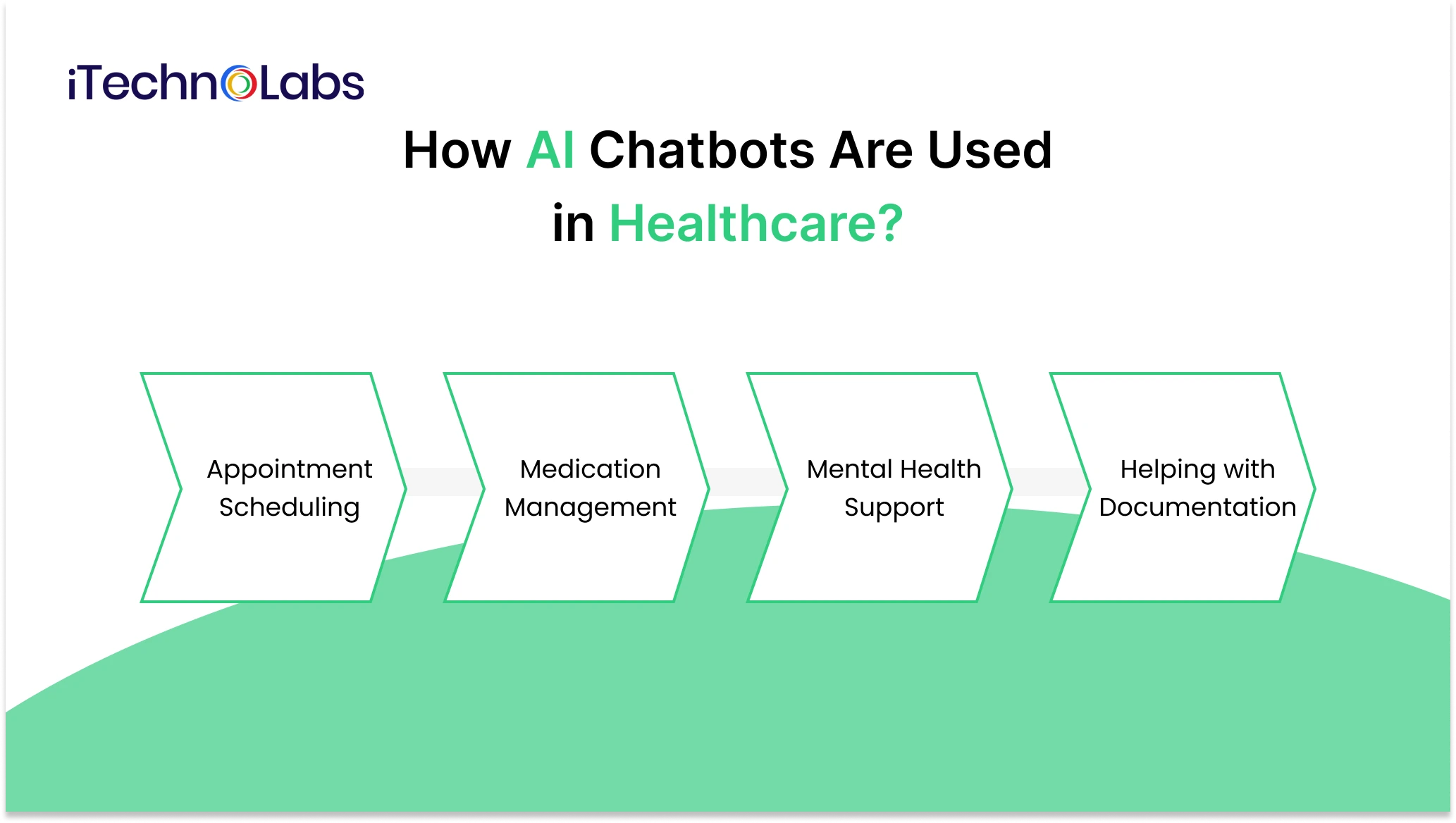
There is not just one use of medical AI chatbot but a thousand. Following are the various ways in which AI chatbots are used in the healthcare sector:
1. Appointment Scheduling
Previously, healthcare staff had to schedule appointments manually, which was time-consuming. With the help of medical AI chatbots, patients can schedule appointments without human staff.
AI assistants help patients choose the date and time according to their convenience. After scheduling the appointment, AI confirms it. Moreover, on the day of the appointment, the AI will send you a reminder for the same. This ensures no appointments are missed.
2. Medication Management
Before the invention of AI, patients had to memorize their medications and take them on time. But now, as the medical AI chatbot has come, it sends timely reminders to patients and ensures they follow their medication course properly.
Moreover, the AI assistant in healthcare helps with dosage, medication timing, and safety precautions. The patients can even ask questions about their medication, and the AI chatbot will instantly answer them.
3. Mental Health Support
Many people might feel awkward sharing their problems with a real human doctor. Here, the AI chatbot in healthcare becomes someone who hears their problems without judging them.
It provides basic guidance to patients regarding their problems. It’s also to be noted that it does not completely replace a human doctor, but acts as a non-judging friend.
4. Helping with Documentation
Healthcare professionals spend a lot of time writing reports and uploading patient records into the systems. This time-consuming activity can be done through an AI chatbot in healthcare. Additionally, AI can provide a summary of the patient record, which again saves the time of doctors.
Benefits of AI Chatbots in Healthcare
The benefits of medical AI chatbots are countless. Below you can see the advantages of using AI chatbots in the healthcare industry.
-
24*7 Support
Human healthcare professionals can’t always be available for patients. Unlike humans, AI chatbots in healthcare can monitor patients all the time and send an alarm to the doctor if they find anything wrong.
Moreover, the AI assistants can reply to customer queries anytime. This ensures that the patients get timely medication and adjustments in their treatment plan as and when required. The 24*7 monitoring ensures that even a minor fluctuation in health will be caught by the AI chatbots, and an immediate action can be taken by the doctors.
-
Reduced Workload
Medical AI chatbots can automate repetitive tasks of healthcare professionals, such as maintaining patient records, uploading them to the system, scheduling appointments, and more. This helps the doctors and nurses to focus on the more important task – taking care of patients.
Further, medical professionals can also focus on emergency cases, while AI will take care of the routine tasks. This increases the capacity of hospitals to handle more patients at a single time. With routine tasks getting automated, doctors can completely devote time to treating patients.
-
Reduced Cost
With medical AI chatbots, hospitals do not have to hire any further staff for the administrative tasks. That’s because the chatbots can do all the repetitive tasks, which eliminates the need to hire additional people. In addition to this, when medical AI chatbots do the routine tasks, it will result in fewer errors as humans can make mistakes, but a machine. Fewer errors means better efficiency of the hospitals.
-
Personalized Patient Engagement
Every patient has unique medical needs. The AI healthcare chatbots provide a personalized treatment plan to every patient. This ensures that the medication will be effective since the patients will get a customized treatment plan based on their unique medical conditions.
-
Enhanced Data Collection
Data plays a major role in implementing AI into any organization, and humans take a lot of time to collect the data. The medical AI chatbots can easily collect patients’ information and detect healthcare patterns over a passage of time. Based on this data, the healthcare professionals can make the right decisions and create an accurate treatment plan for patients.
Suggested article: Benefits of AI in Software Development
Real World Examples of AI Chatbots in Healthcare
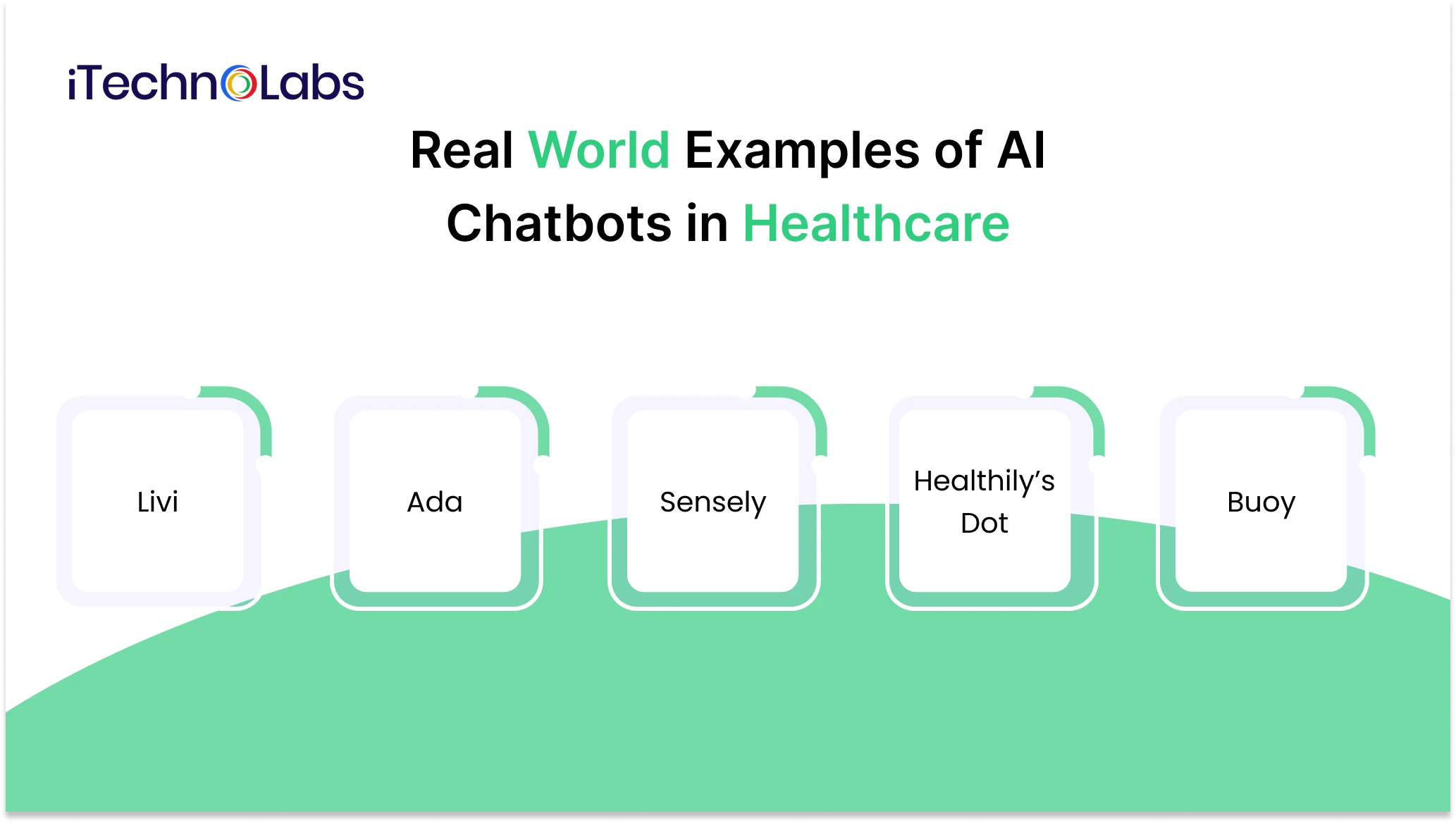
After learning what is an AI chatbot in healthcare and its benefits it’s time to see the AI chatbots helping healthcare services providers worldwide. The following are some of the notable medical AI chatbots:
-
Livi
The company uses a conversational AI driven chatbot, Livi. Earlier it was used to just answer the questions of patients but now it’s an important part of patient engagement at UCHealth. It helps patients find their test reports and lets them interact with doctors. The tool provides a seamless and a smooth patient experience. Livi improves patient experience, increases efficiency, and enhanced commmunciation. By providing 24/7 services, it reduces the cost of callers and administrative staff. The patients can access livi on UCHealth’s app, website and even on amazon alexa.
-
Ada
Developer by Ada Health Ada is an AI driven chatbot platform for checking the symptoms. It has a user base of 40 million people and an in-house team of 50 medical experts. The app is available to download on both Apple Store and Google Play Store. The chatbot allows people to make different profiles for checking different symptoms of themselves and their family. The chatbot’s symptom tracking feature lets patients see how their health changes over time. This is especially effective in detecting rare and complex diseases and provides best-in-class accuracy.
-
Sensely
Sensely is a conversational AI platform that allows healthcare service providers to create chatbot solutions. This tool can be integrated into websites apps and can schedule appointments and monitor chronic conditions. The USP of this AI assistant is that it provides personalized assistance to every patient according to their needs. It is trusted by sources like Mayo Clinic and the NHS. the ai tool is capable of detecting over 300 symptoms and can suggest best instructions for medical care.
-
Healthily’s Dot
Created by Healthily, Dot is an AI-driven platform that consists of multiple software products. One of the products is an AI-based symptom checker which can provide medical information to patients for better self-care. The chatbot analyzes the symptoms and asks relevant questions to narrow down the potential illness and provide a personalized plan for quick recovery. Healthcare providers can easily incorporate this tool into their websites and apps via platform low-code tools.
-
Buoy
The next AI chatbot in healthcare is Buoy. It’s an AI driven chatbot that helps patients interpret their symptoms and choose the best medical plan. Once the AI tool has understood the symptoms of patients by asking a few questions, it’s just them which will be the best action plan, self medication or visiting a doctor. With user permission this tool can even follow up with patients to monitor their progress.
Comparing Top AI Chatbots in Healthcare
Now you have understood what is AI chatbot in healthcare, its benefits, and some popuar medical AI chatbots. But, how will you choose the best AI chatbot for your oganization. In this section we are going to compare medical AI chatbots on multiple parameters to help you select. Here is a comparison of top AI chatbots in healthcare in tabular form:
| Chatbots | Best For | Pricing | User Rating | Integration Ease |
| ProProfs Chat | Customized messages and automated greetings | $19.99/month | 4.8 (Capterra) | Easy (simple integration with CMS, CRM) |
| Ada Health | Intelligent symptoms assessment | Custom pricing | 4.6 (G2) | Medium (requires healthcare-specific setup) |
| Kore.ai | Appointment management | $50/month | 4.7 (G2) | Easy (supports enterprise apps and APIs) |
| Hyro.ai | Real-time insights | $10,000/month | 4.9 (G2) | Complex (build for large-scale healthcare systems) |
| Kommunicate | Bot to human hand-off | $100/month | 4.6 (Capterra) | Easy (default-integration with wahtsapp, FB, CRM) |
| SmartBot360 | SMS Follow-ups | $500/month | 5 (Capterra) | Medium (needs configuration for SMS and CRM tools) |
Challenges of AI Chatbots in Healthcare
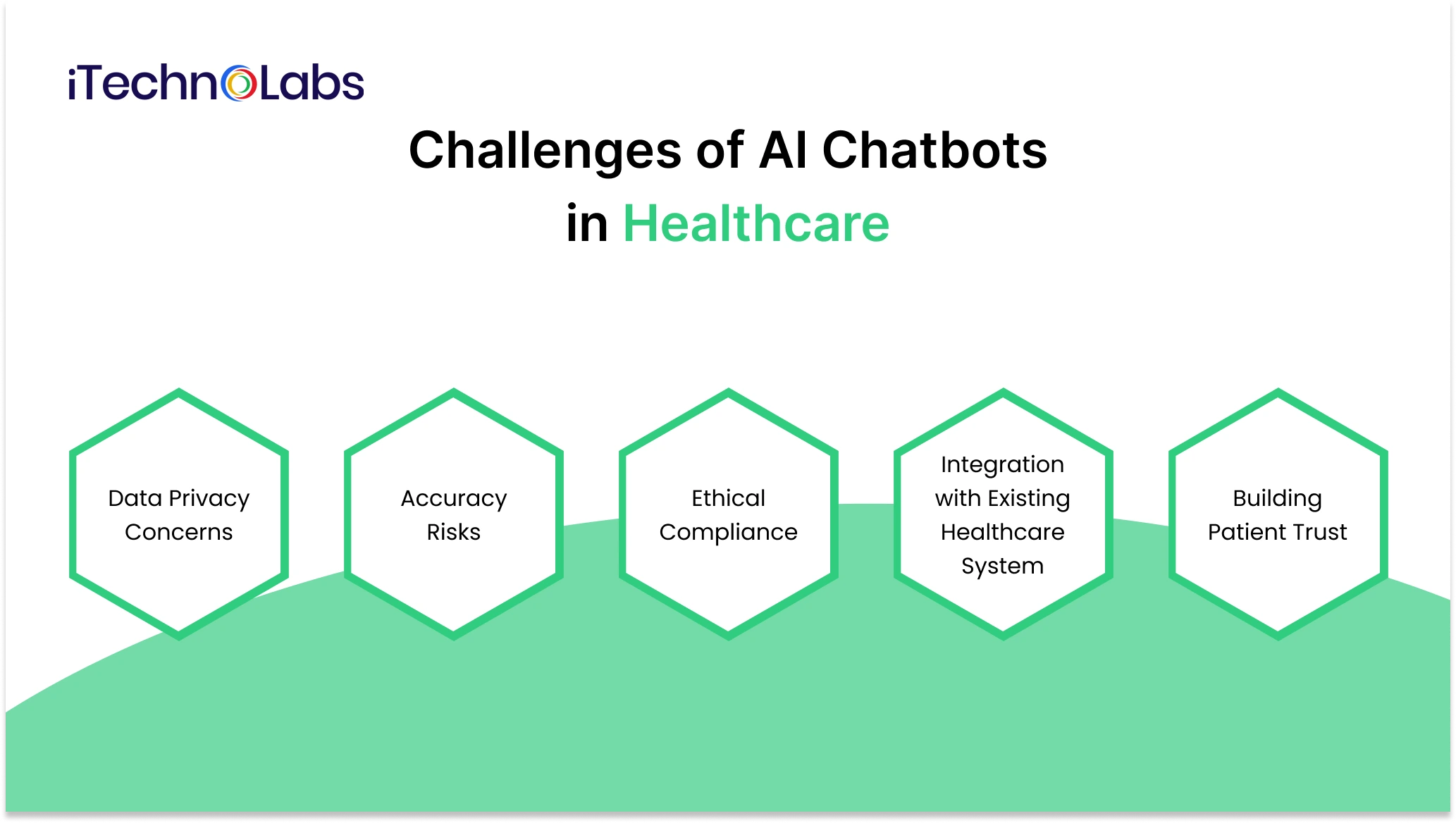
The benefits of AI chatbots in healthcare are immense. But along with the benefits, there are also some issues in implementing AI in healthcare. Here are some of the major challenges hospitals and other healthcare firms may face while using an AI chatbot:
1. Data Privacy Concerns
An AI chatbot in healthcare will consist of sensitive information about patients. This needs to remain private and confidential. For data privacy, hospitals need to implement data protection laws prevalent in their country.
To implement such an AI assistant, there is a constant fear of exposing them to cybercriminals. If cybercriminals get access to a medical AI chatbot, they can manipulate the data, which might lead to incorrect diagnoses.
2. Accuracy Risks
AI chatbots in healthcare can make mistakes and do not always provide the right and up-to-date information. The AI tools do hallucinations and generate fabricated information. In case of healthcare this can have severe consequences on the patients.
Therefore, its responses must be checked by the doctors at the end, before suggesting it directly to the patients. Further, it should be updated regularly, so that it will provide correct and accurate information.
3. Ethical Compliance
Before implementing medical AI chatbots in your healthcare services, it’s important to ensure that they comply with legal and ethical guidelines. These laws ensure that patients remain safe while interacting with AI assistants.
One of the key aspects for AI tools is complying with HIPAA regulation which provides complete information about the nature of AI. If the AI is trained using inaccurate data, then it will generate biased and unfair results.
4. Integration with Existing Healthcare System
To take the complete advantage of AI healthcare chatbots, hospitals need to ensure that they smoothly integrate with their existing systems. Every healthcare firm uses different software to maintain patient records. So, before implementing an AI chatbot, it is necessary to check if it is compatible with the current software.
5. Building Patient Trust
During the old days, people used to come worry-free to the human doctors and discuss their medical problems. But now with AI healthcare chatbots, people resist as it’s a machine only. They doubt whether the chat will remain private, secure, and confidential. Therefore, hospitals need to educate patients about the reliability of chatbots.
Also, read: Role of AI in Business Intelligence
Conclusion
By adopting AI in routine work, hospitals can save a lot of time and cost. After getting free from time-consuming tasks, they can treat patients well. An AI chatbot in healthcare can automate daily tasks, schedule appointments, monitor patients, maintain patient records, and provide them with useful advice. Patients can get direct reminders from chatbots for their medicines and answers to their queries, while healthcare firms get a low-cost virtual assistant that will do everything without taking a break. This is a win-win situation for both parties.
Using AI chatbots in healthcare provides multiple benefits, such as 24*7 support, reduced workload, lower cost, personalized patient engagement, enhanced data collection, and more. However, along with the benefits, there are many challenges to AI chatbots in healthcare, such as data privacy concerns, accuracy risk, ethical issues, building consumer trust, and more. But you don’t need to tackle all these problems alone. We at iTechnolabs provide you with a team of AI experts who will take care of all your needs. With 9+ years of experience in developing AI models for multiple clients, we are one of the most reputed organizations in the AI development segment. Visit our website now to get your medical AI chatbot and enhance your employees’ productivity, reduce costs, and increase revenue.
FAQs
1. What are AI chatbots in healthcare?
AI chatbots in healthcare are virtual assistants that provide guidance to patients, help to maintain patient records, and even schedule appointments. It makes healthcare professionals free from routine tasks and allows them to better focus on the patients. This enhances the productivity and efficiency of the healthcare services provider.
2. What type of AI is used in healthcare?
There is a wide range of AI technologies used in healthcare. However, some of the most prevalent AI technologies are machine learning, natural language processing, and generative AI. The type of AI technology will depend on the unique requirements of every hospital services provider.
3. What is the function of AI in healthcare?
The function of AI in healthcare is to schedule patient appointments, maintain patient records, and send reminders to patients to take their medicines. Moreover, the AI helps to improve the patient health, automating administrative tasks, and predicting diseases using advanced technologies.
4. What is a real-world example of AI in healthcare?
Many healthcare service providers around the world have started using AI chatbots to provide better services to their patients. This not only saves their time but also enhances productivity and efficiency. The most popular AI chatbots in healthcare are Buoy, Healthily’s Dot, Sensely, and Ada.
5. What are the advantages of AI in healthcare?
The most advanced technology of the 21st century, AI, provides multiple benefits in every sector in the world. And healthcare is no exception. It provides a wide range of advantages such as better patient engagement, automated administrative tasks, improved diagnosis accuracy, reduced costs, fewer errors, and better resource management.
6. What are the risks of AI in healthcare?
Just like any other technology, AI in healthcare also comes with a lot of challenges. Before getting excited by seeing the benefits of AI in healthcare, the healthcare services provider needs to resolve many issues that can hinder their growth. Some of the common risks with implementing AI in healthcare are data privacy, security breaches, ethical issues, lack of transparency, over-dependence on technology, high cost of adoption, and algorithm bias.

